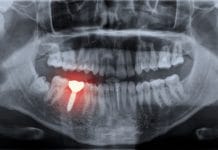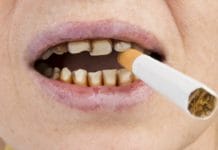Many factors are at play in a woman’s body during pregnancy, and the oral cavity has an important role in the health of the mother as well as for the developing baby. All healthcare providers serve a role in the education of the expecting mother. The dental team should be knowledgeable, as well as comfortable, in educating a patient before, during, and after pregnancy.
Before Pregnancy
If a patient informs the dental clinician that she is planning to become pregnant, the clinician can use this opportunity to stress just how important it is to keep up with dental care and home care throughout the pregnancy.
Morning sickness and nausea can be addressed. The side effects of repetitive vomiting can increase a woman’s risk for tooth decay, so being aware of this ahead of time may help the patient prevent problems. Advice such as rinsing with a water and baking soda mix (to help neutralize acids after vomiting), waiting to brush for about 30 minutes after vomiting, using xylitol products, and even using a very soft toothbrush to reduce abrasion in an acidic environment could be helpful to know ahead of time for the future expectant mother.1
Perhaps asking the patient if they currently have a medical provider to check overall health, as well as prescribe prenatal vitamins. This may be something the patient did not take into consideration and could be a helpful step in a healthy pregnancy.
During Pregnancy
When a patient discloses that they are currently pregnant, a dental clinician may want to ask several questions so that the best advice can be given. Each individual patient has different needs, so customizing the recommendations will be a high priority.
One topic that may be addressed could be the use of dental anesthetics during pregnancy. Many patients may choose to wait for large restorative treatment until after delivery. However, according to the American Dental Association, no adverse effects have been found when using dental anesthetics during pregnancy.2 That gives the opportunity to provide care that should not be delayed.
Another topic may be dental x-rays. Most sources agree that waiting until after delivery for routine x-rays such as bitewings is acceptable. However, diagnostic x-rays for pain or large restorative cases are safe with proper shielding.4
Patients can be advised that good home care, eating healthy, and proper dental care are all crucial in preventing pregnancy gingivitis.3 This may seem logical. Sometimes, though, a reminder of how important these simple acts can be in providing positive effects can be very important. Dental professionals are very aware of how diet and home care can affect teeth and overall oral health, and we can give a specific perspective to our expecting patients.
After Pregnancy
As dental experts, we have the greatest knowledge about preventive dental health to share with our patients. During pregnancy, we can give advice regarding the dental care of an infant during pregnancy. It will be vital for the mother to be planning for her child’s future dental health. We can share tips about cleansing the infant’s mouth with a soft cloth wrapped on a finger or recommending some of the newer xylitol infused wipes for infants’ oral care.
We may want to discuss the use of fluoride supplementation in an infant, especially if there appears to be a high risk of decay in the mom or even siblings. We may be able to change habits, in order to prevent the continuation of rampant decay in a family, just by sharing this vital information.
After pregnancy, of course, special emphasis should be placed on the child’s oral health for the near and long-term future. One topic that may be addressed is thumb-sucking vs. encouraging the use of a pacifier. We may have our own opinions, but giving parents the facts may help them decide what they feel best about. (Of course, sometimes the infant will make the decision.)
Discuss with a new parent about the things to avoid, such as giving the baby a bottle of milk or juice at night. Some parents may need to be educated on the risk of caries due to constant exposure to sugars while sleeping with a bottle.
Some education may also be given to help parents avoid sharing utensils as well as other saliva-sharing practices. Keeping sugar consumption primarily at meal-time is an excellent routine to help parents achieve for their child’s long-term dental health.1 The earlier that these habits can be instilled in a child, the more successful they will be at maintaining a healthy mouth for their entire life.
These are just a few ideas regarding the conversation we can have with our patients who are planning to become parents or anyone who is already a parent. I know that having ideas, as well as trying to have a plan of action for your own discussions, is extremely important. We may be the first health-care provider to counsel a patient. We have a large base knowledge of how dental health can affect overall health, as well as quality of life.
Need CE? Check Out the Self-Study CE Courses from Today’s RDH!
Listen to the Today’s RDH Dental Hygiene Podcast Below:
References
- Oral Health Care during Pregnancy and Early Childhood Practice Guidelines. New York State Department of Health. August 2016. Retrieved from https://www.health.ny.gov/publications/0824.pdf
- News Release: New Study Shows Dental Treatment during Pregnancy is Safe. American Dental Association. August 2015. Retrieved from https://www.ada.org/en/press-room/news-releases/2015-archive/august/new-study-shows-dental-treatment-during-pregnancy-is-safe
- Marcin, A. 5 Ways to Prevent and Treat Pregnancy Gingivitis. Healthline Parenthood. June 2016. Retrieved from https://www.healthline.com/health/pregnancy/gingivitis#what-is-it
- Pregnancy and Dental Work. American Pregnancy Association. Retrieved from https://americanpregnancy.org/pregnancy-health/dental-work-and-pregnancy/












